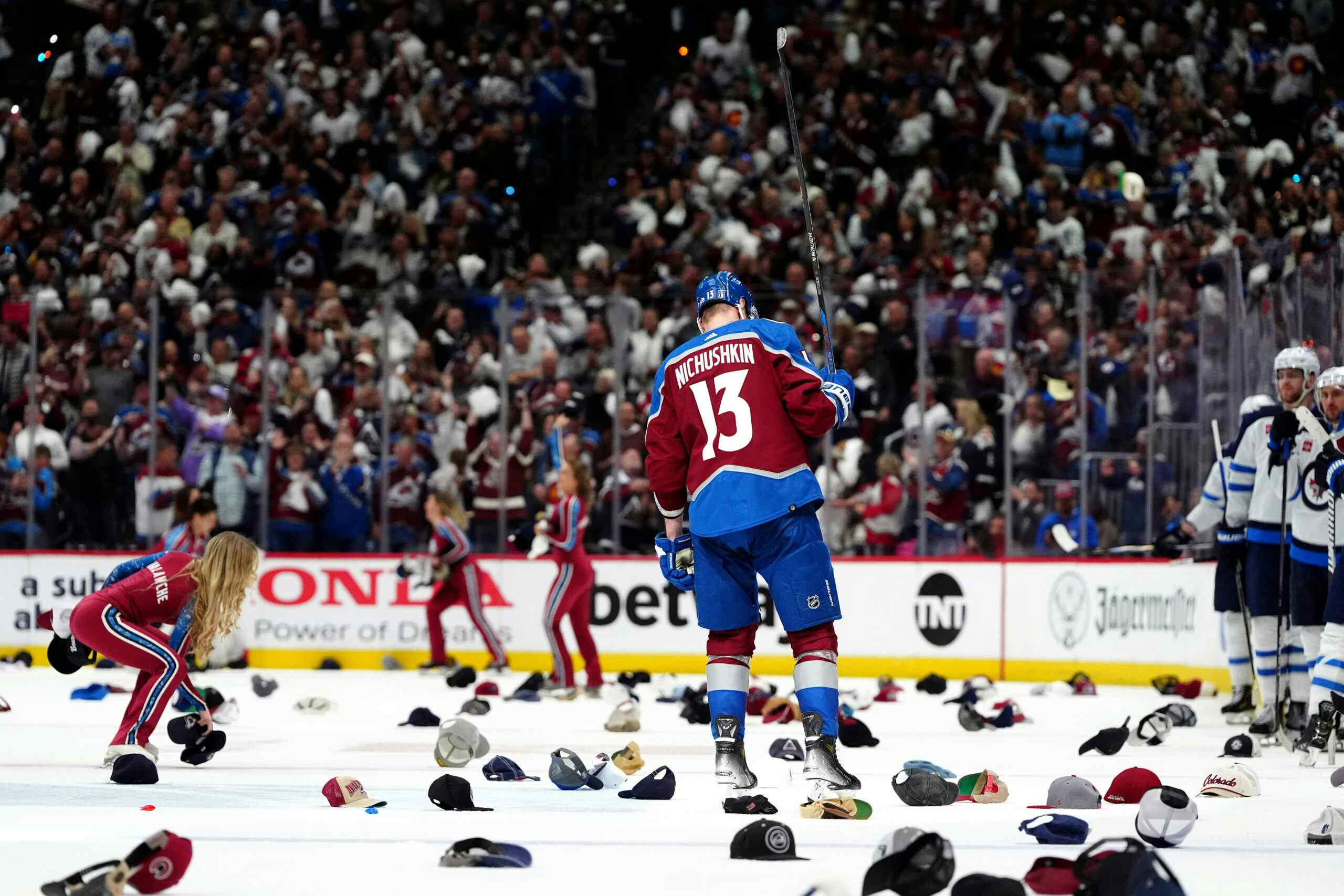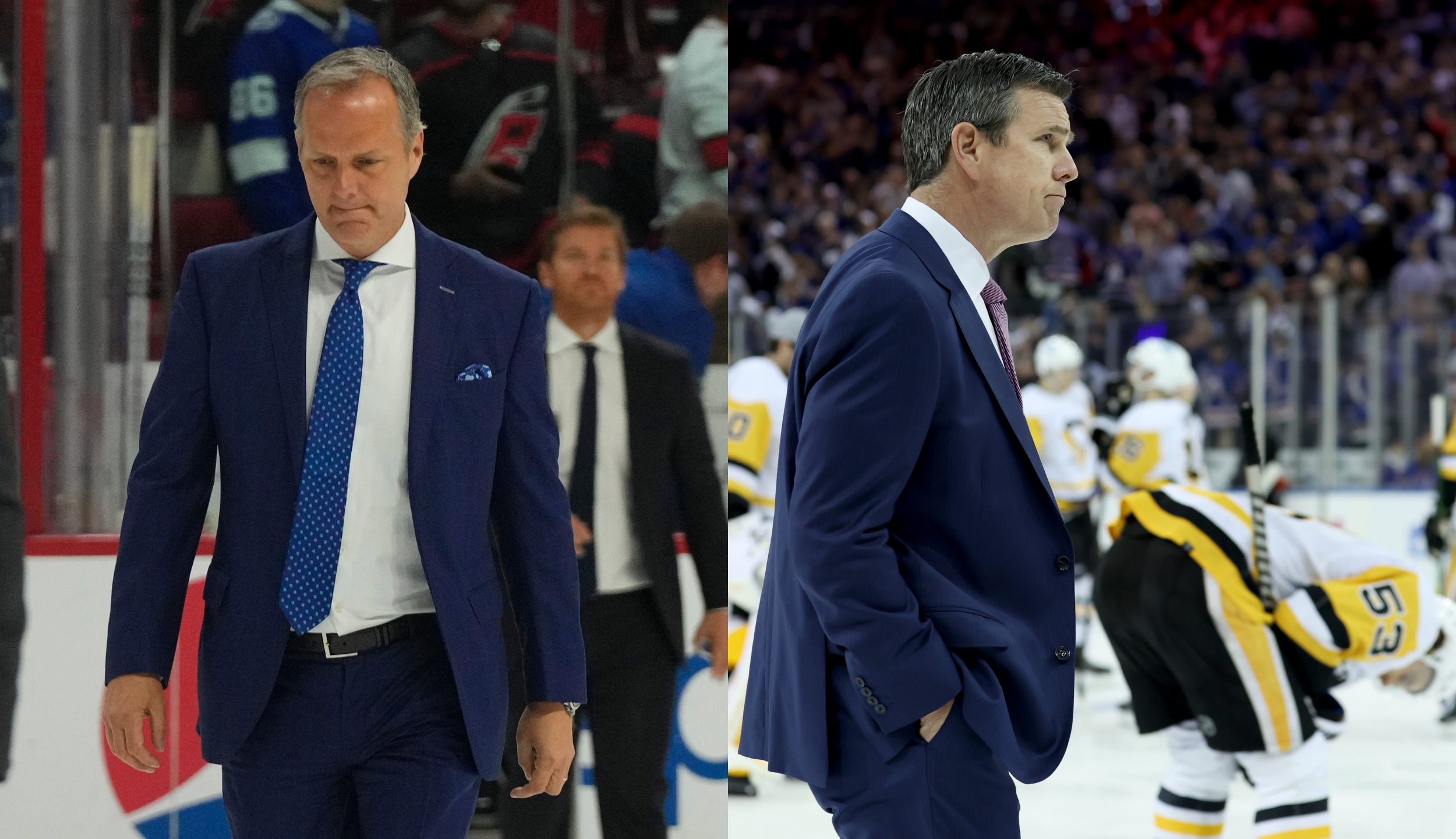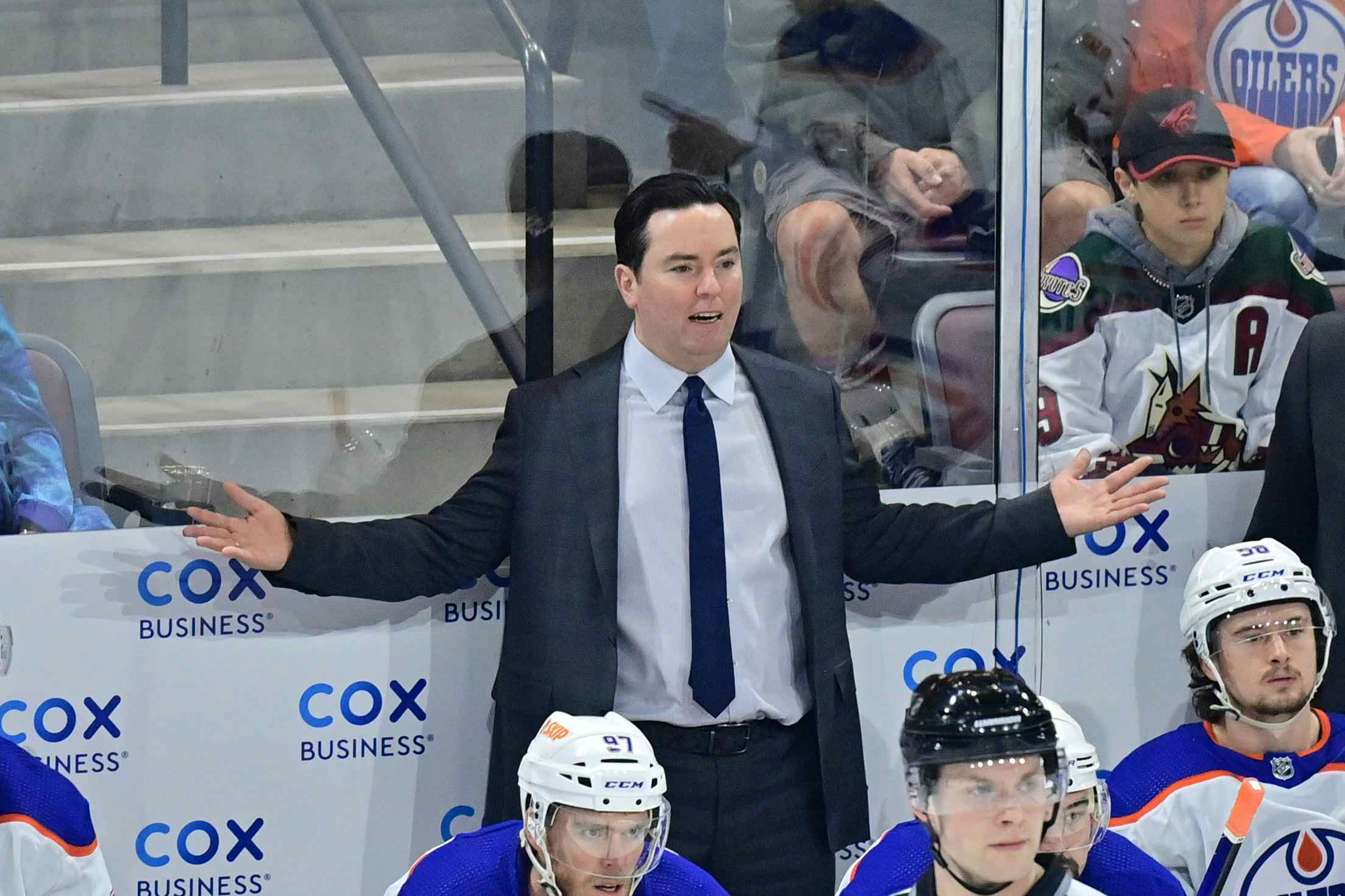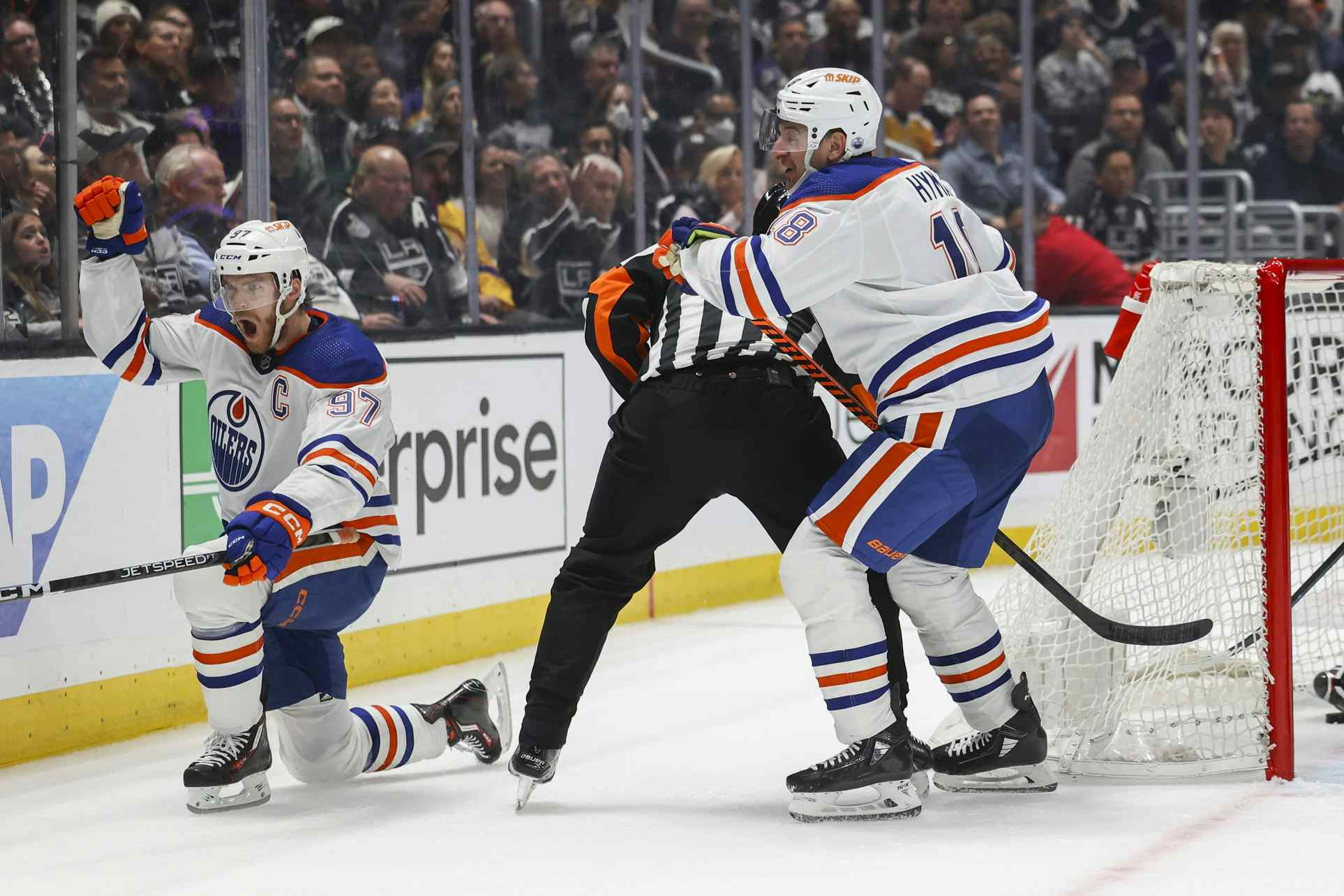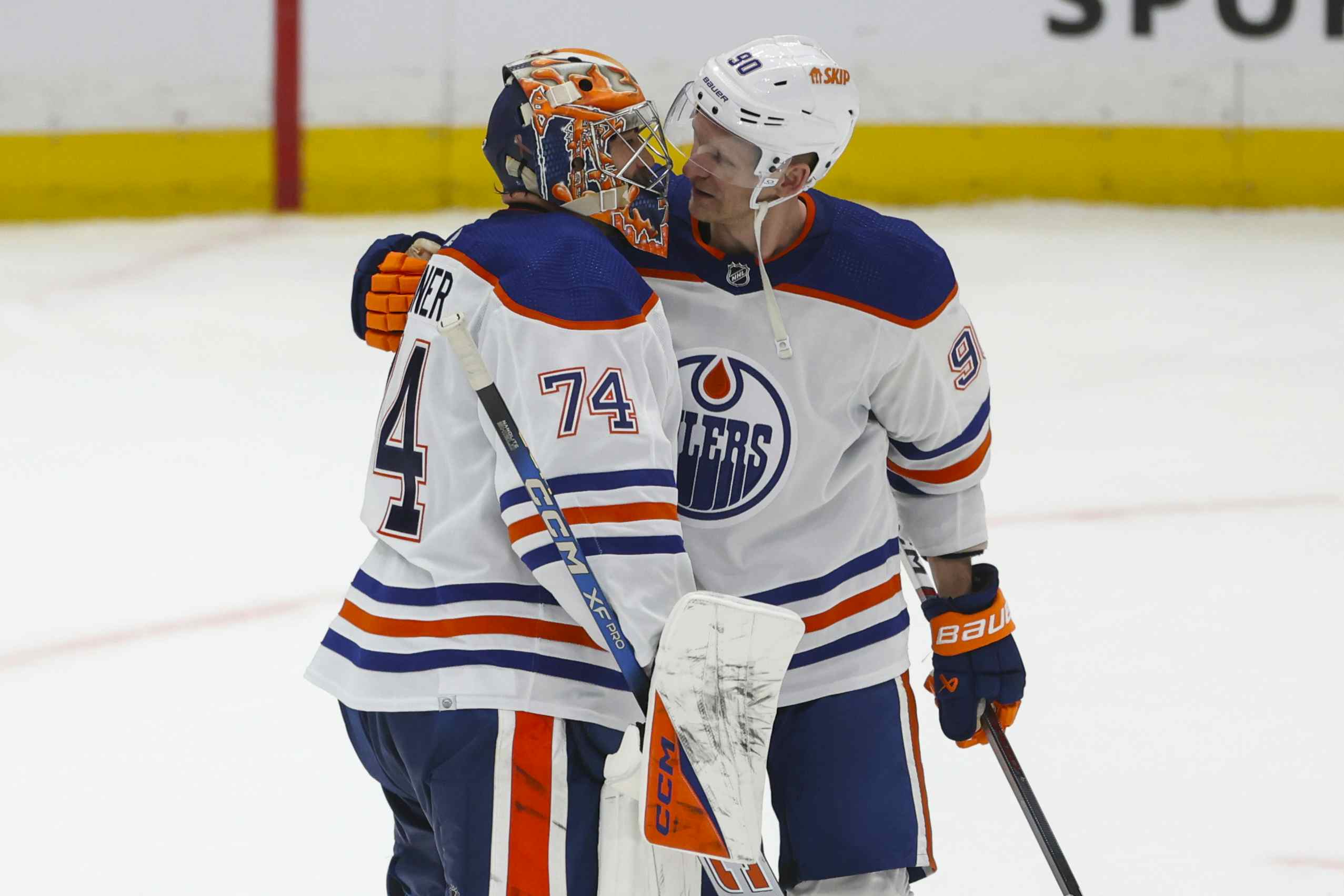Top-10 UFA Countdown: #4 – Antoine Vermette
By Ryan Lambert
8 years ago
Photo Credit: Richard Mackson/USA TODAY Sports
The outcome of the Stanley Cup Final will, in many ways, vindicate Stan Bowman’s decisions at the trade deadline this year. He spent big to get Antoine Vermette and Kimmo Timonen (a combined cost of two second-round picks, a first, and a decent prospect) and hadn’t, for most of the playoffs, gotten much out of them.
There wasn’t much of a surprise there with Timonen, because the guy is like 112 years old and coming off a very serious health concern that almost ended his career. But the performance of Vermette, which has only began to sort itself out late in the run, long seemed a point of concern to say the least.
We’re obviously working with a very limited data set here (just 39 games from the regular season through the end of the playoffs) but 4-6-10 in all situations and a sub-50 percent possession number on a team as good as Chicago is deeply problematic. Which goes a long way toward explaining his getting just 13:35 per game from Joel Quenneville; he hasn’t averaged that few since he was a sophomore in the league, back in 2005-06.
At best, Bowman was “vindicated” with a Cup win (in much the same way the Tomas Kaberle trade once didn’t-matter after the Bruins won the Cup), but at worst, the Vermette and Timonen trades could look like terrible decisions.
And though he came on late, the fact that scoring two goals in six games was a coup probably throws Vermette’s price in the UFA market into serious doubt, if nothing else.
Track record
And the thing with that is obviously an issue of Vermette, generally, having a strong run in this league.
Vermette’s career numbers suggest a player who can meaningfully contribute to his team. In his entire career, he’s a decent enough contributor; his relative goals, possession, and scoring chance numbers are all a bit below those posted by his teams over his 902-game career (regular- and postseason) but one also has to keep in mind that he’s been on some truly dreadful teams; Columbus from 2008-12, Phoenix from 2012-present. Those will hurt your numbers.
So too will the fact that he is generally cast in a defensive role, with his zone starts typically coming well below his team average — his relative possession/goals/chances numbers are in the negative-0.5 to negative-2 range (not great) but his relative zone starts over his career is negative-2.34, and his competition is toward the higher end of the teams he’s been on.
In short, he’s outperforming usage. And moreover, he’s one of the league’s elite face-off men, with a career average north of 56 percent.
So basically, Bowman was right to bet on his being able to contribute meaningfully in a defensive role, which he has largely done well enough. What obviously remains a sticky point of concern is the fact that his offense has not been as-promised.
A lot of those numbers, though, seem misleading, because he’s being put into positions where he has little experience in his career. Joel Quenneville has basically used him only at 5-on-5, while he has gotten a good mix of ES, PP, and PK time in his career.
So no, Vermette is not doing well in Chicago, but they’re also not using him in the ways that have made him successful throughout his career. This is what Vermette’s 5-on-5 numbers look like for his career, compared with what he’s done for Chicago (I’d include special teams data, but again, Joel Quenneville gave us no basis for comparison):

Now, the scoring is down and obviously you say that’s due to the much higher save-percentage against, and that’s fair enough. But you have to keep in mind that Vermette’s previous teams were basically all not very good for years, so the relative performance was strong. Meanwhile, relative to what the rest of his Chicago teammates did, Vermette’s numbers weren’t very good.
Future performance
So no, let’s not take what he’s doing with Chicago as any sort of sign of what he’s actually capable of. As you can see, the lack of offense comes from a decline in his personal and on-ice shooting percentages, and you can probably attribute a lot of these problems to the toughness of the competition and bad luck combined.
But at the same time, those career numbers came throughout his 20s, and he’s about a month away from being 33. Even if you’re really optimistic that he rebounds to the points seen earlier in his career, which look to make him roughly low-level top-six guy who can be used in a defensive role while still chipping in on offense, you can’t be super-confident that he’ll be able to keep these numbers up for much longer than next season.
The good news, though, is that even if his numbers drop off he might retain some value as a purely defensive player/faceoff specialist. The bad news is that you’re probably going to have to pay him at least approximately as what he’s perceived to be over the last few years — even if his value has taken a hit because of the performance with Chicago — instead of a guy who’s on the back nine in his career.
Contract outlook
At this point, the numbers suggest that he’s basically a late-career Brenden Morrow, an RJ Umberger (perish the thought!), or — and this is the intriguing one — a Joel Ward from this year.
I think it’s safe to assume that Ward cashes in on another strong season and postseason run and gets one last big contract. He’s actually slightly older than Vermette, so teams in the market for a player of this type — defensively responsible with the ability to chip in 35-45 points — they may be seen as more or less comparable (I touched on Ward’s career in an examination of Matt Beleskey a few weeks ago, and all three of these guys strike me as being similar players based on the numbers.
So if playoff performance matters to GMs as much as it very clearly does, and we also take age and diminishing returns into consideration, I think the clear market for guys of this type goes: 1) Beleskey, 2) Ward, 3) Vermette. That is, teams who want guys of this ilk will take a run at the former Duck, then Ward, then our guy here.
Beleskey’s going to get overpaid — I’d guess five years at $4.5 million per, as he will only be 27 when this deal starts — and each guy after him will likely take a successive step down. Ward probably three years at $4 million per. Vermette’s postseason here probably costs him half a million bucks on that. Again, just a guess.
Three years of Vermette at $3 million? You might think he’d be worth it. But it’d be an optimistic outlook.
More from the Top-10 UFA Countdown
Recent articles from Ryan Lambert

